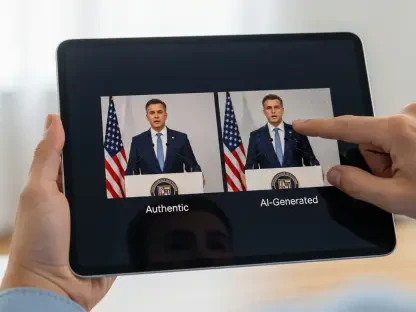In the shadowy world of international cybercrime, few have delved as deeply into the intricacies of scams and identity theft as Donald Gainsborough. A political savant and leader in policy and legislation, Donald heads Government Curated, where he tackles the intersection of technology, fraud, and national security. Today, we’re diving into a chilling case involving four Americans who recently pleaded guilty to aiding North Korean scammers in a scheme that defrauded U.S. companies out of millions. Our conversation with Donald explores the mechanics of this elaborate fraud, the staggering financial gains, the impact of remote work trends, and the broader implications for cybersecurity and international crime.
How did these four Americans become entangled in a scheme with North Korean scammers, and what specific actions did they take to assist?
Well, Debora, these individuals essentially acted as middlemen in a very sophisticated fraud. They allowed their identities to be used by North Korean operatives to secure remote IT jobs at U.S. companies. This meant providing personal information and credentials that made it look like they were legitimate employees. They also played a key role in helping these fake job-seekers navigate employer vetting processes, sometimes even posing as the candidates during interviews or background checks. On top of that, they kept employer-issued laptops at their homes, which were then accessed remotely by the scammers to perform the work—or at least pretend to.
What motivated these individuals to participate, and how much money did they personally gain from this operation?
Financial gain was the clear driver here. Each of the four Americans received payments for their involvement, though the amounts varied widely. For instance, Travis, an active-duty U.S. Army member, pocketed over $50,000, which is a significant sum compared to Phagnasay and Salazar, who earned around $3,450 and $4,500 respectively. Then you have Erick Prince in Florida, who reportedly made $89,000 by using his own company to facilitate the placement of these fake workers. It’s a stark reminder that even small roles in such schemes can yield big payouts, which is often enough to lure people in despite the risks.
Can you break down how this scam functioned on a broader scale and the kind of money it generated?
Absolutely. The scam was built on a foundation of identity theft and deception. North Korean operatives, posing as U.S.-based IT workers, secured remote positions at dozens of companies. By using the identities of complicit Americans, they managed to pull in about $1.28 million in salaries. Most of that money didn’t stay in the U.S.—it was funneled overseas, likely to support North Korean interests, including their weapons programs. It’s a classic example of how cybercrime can have far-reaching geopolitical consequences beyond just financial loss.
How did the timeline of this operation unfold, and what external factors made it easier to pull off?
The scheme ran for several years, with some activities dating back to 2019 and continuing as late as 2024 for certain individuals. Over that period, the scammers refined their tactics, exploiting vulnerabilities in hiring processes as companies increasingly relied on remote workers. The Covid-19 pandemic was a game-changer here. With the sudden shift to remote work, employers were less likely to meet candidates in person, and vetting became more lax. This created a perfect storm for fraudsters to slip through the cracks using stolen or borrowed identities.
Beyond these four Americans, who else played a significant role in orchestrating this fraud?
This was a truly international operation. Alongside Erick Prince, the Justice Department indicted two North Koreans and a Mexican national, who were likely involved in coordinating the scheme or handling the overseas money flow. Additionally, a Ukrainian national named Oleksandr Didenko pleaded guilty to stealing and selling the identities of U.S. citizens to these fake IT workers. His role was crucial—he provided the raw material, so to speak, that allowed the scammers to impersonate real people. It shows how interconnected and borderless cybercrime has become.
What was the impact on the U.S. companies targeted by this scam, and how widespread was the damage?
The impact was significant. Around 40 U.S. companies fell victim to this scheme, hiring these fake employees and paying out salaries for work that was either substandard or, in some cases, not done at all. Beyond the financial hit of over $1.28 million, there’s the trust issue—companies were deceived on a massive scale, and sensitive data may have been exposed through those laptops hosted at private residences. It’s a wake-up call for businesses to tighten their hiring and security protocols, especially in a remote work environment.
What is your forecast for the future of scams like this, especially as remote work continues to be a norm?
I’m deeply concerned, Debora. As long as remote work remains prevalent, scammers will keep exploiting the lack of face-to-face interaction and the rush to fill positions. We’re likely to see more sophisticated identity theft schemes, possibly involving AI to mimic voices or create fake video interviews. On the flip side, I expect governments and companies to ramp up countermeasures—think multi-factor authentication for hiring or blockchain-based identity verification. But it’s a cat-and-mouse game, and with state-backed actors like North Korea in the mix, the stakes are incredibly high. We need global cooperation and smarter policies to stay ahead of these threats.









